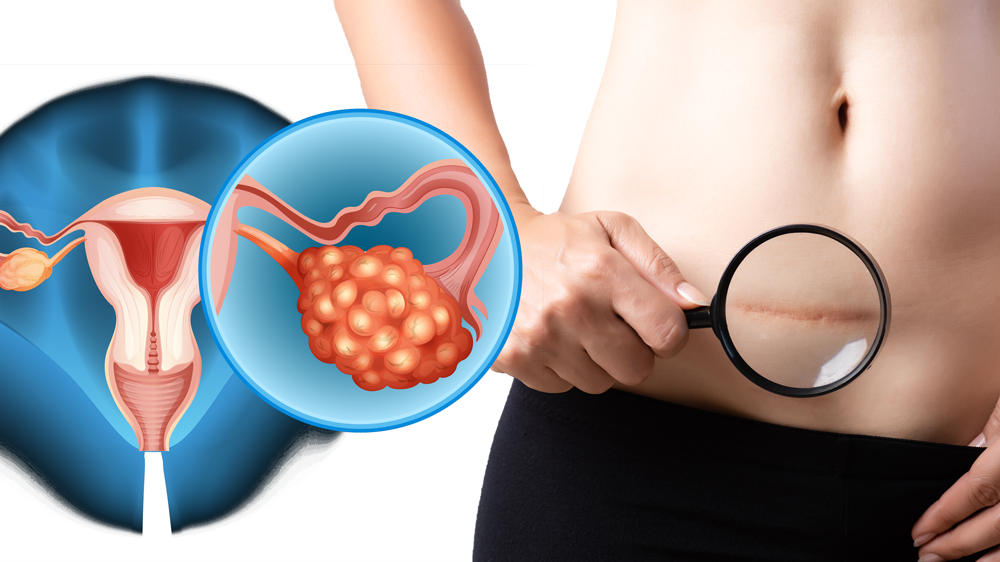Ovarian cancer is an abnormal growth of cells that form in them. Cells multiply rapidly and can penetrate and destroy healthy tissue. The female reproductive system contains two ovaries, one on each side of the uterus. The ovaries – each the size of an almond – produce eggs, as well as the hormones estrogen and progesterone. Treatment for ovarian cancer usually involves surgery and chemotherapy. When ovarian cancer first develops, it may be asymptomatic, meaning it may not cause any noticeable symptoms. When symptoms of ovarian cancer appear, they are usually attributed to other, more common conditions.
Signs and symptoms of ovarian cancer may include:
Abdominal bloating or swelling
Feeling full quickly when eating
Weight loss
Discomfort in the pelvic area
Fatigue
Back pain
Changes in bowel habits, such as constipation
Frequent need to urinate
Reasons
Doctors know that ovarian cancer starts when cells in or near the ovaries develop changes (mutations) in their DNA. The cell’s DNA contains instructions that tell the cell what to do. The changes tell cells to grow and multiply rapidly, creating a mass (tumor) of cancer cells. Cancer cells continue to live when healthy cells die. They can invade nearby tissues and break away from the initial tumor to spread (metastasize) to other parts of the body.
Prophylactic oophorectomy: Preventing cancer by surgically removing your ovaries
There is no safe way to prevent ovarian cancer. But there are ways to reduce the risk:
Consider taking birth control pills. Ask your doctor if birth control pills (oral contraceptives) are right for you. Taking birth control pills reduces the risk of ovarian cancer. But these drugs have risks, so discuss whether the benefits outweigh those risks based on your situation.
Discuss your risk factors with your doctor or if you have a family history of breast and ovarian cancer. He or she can determine what this may mean for your cancer risk. You may be referred to a genetic counselor who can help you decide if genetic testing may be right for you. If you are found to have a gene change that increases the risk of ovarian cancer, you may consider ovarian removal surgery to prevent cancer.
Types of Treatment
Treatment for ovarian cancer usually involves a combination of surgery and chemotherapy.
- Surgery: Doctors remove cancer tissue in an operation.
- Chemotherapy: Using special medicines to shrink or kill cancer. The drugs can be pills you take or medicines given in your veins, or sometimes both.
Different treatments may be provided by different doctors on your medical team.
- Gynecologic oncologists are doctors who have been trained to treat cancers of a woman’s reproductive system. They perform surgery and give chemotherapy (medicine).
- Surgeons are doctors who perform operations.
- Medical oncologists are doctors who treat cancer with medicine (chemotherapy).
Which Treatment Is Right for Me?
Choosing the treatment that is right for you may be hard. Talk to your cancer doctor about the treatment options available for your type and stage of cancer. Your doctor can explain the risks and benefits of each treatment and their side effects. Side effects are how your body reacts to drugs or other treatments.




